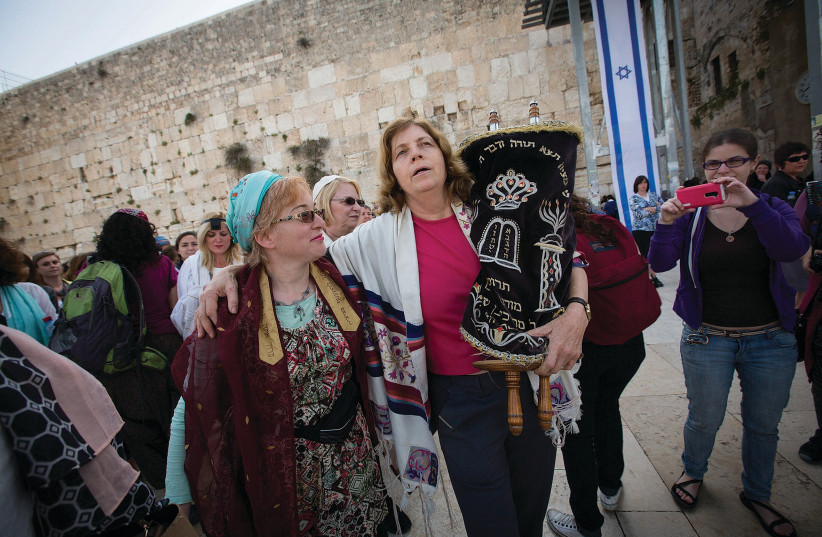On Wednesday, two images taken 800 kilometers away from one another and seemingly without any connection, together told the amazing story of Israel.
At Latrun, the old British and Jordanian fort turned tank museum, former IDF officers prepared for a march to Jerusalem. Led by former IDF chief of staff Moshe Ya’alon, the group of 1,500 reservists left on Wednesday for a three-day march that was to end in a protest outside the Supreme Court on Friday.
At around the same time and 800 km. away, another group of Israelis was fighting for something they believe in: saving lives in the area around Gaziantep, Turkey, where over 10,000 people were killed this week after two devastating earthquakes on Monday.
Delegations from the IDF Home Front Command, the Foreign Ministry, United Hatzalah and IsraAID all arrived in Turkey to help search for survivors and treat the wounded.

Israelis who fight for what they believe in
These were two images of what seemed to be two different Israels but were actually the same. They were images of Israelis who fight for what they believe in, who care for something greater than themselves and who give of themselves for a greater purpose – whether you agree with the protest march or not.
While many Israelis do not believe that the proposed judicial reforms are the end of democracy – myself among them – I would rather live in a country where people feel so passionate about something that they are willing to march over it in the pouring rain than a place where people just don’t care.
That same opposite of apathy is what we saw in the aftermath of the earthquake on Monday when Israel immediately offered assistance not only to Turkey, with which it recently reestablished diplomatic ties, but also to Syria, a country that still poses a direct threat to Israel.
And that is something all Israelis can take pride in: we have created a nation that does not shy away from a disaster but runs straight into it with offers of assistance. Israel was one of the first countries whose delegation landed in Turkey 24 hours after the earthquake, already saving lives within hours of getting to work.
The haters will still hate but for people who know what is true, the pictures from Turkey reinforce some of the basic principles upon which Israel was founded: the preservation of life and the desire to do what is right. It is something we see here in our daily lives and even in the way we wage war as a country. No other military goes to the lengths Israel does to preserve the lives of civilians in combat zones. No one.
A FEW months ago, I met a senior official from the Haitian government who was visiting Israel. He recalled with great emotion the field hospital that Israel set up there within 86 hours of the 2010 earthquake that had struck his country and killed over 150,000 people. This was in Haiti, a country far away with which Israel has very little to do.
Since then, Israeli medical and rescue teams have been dispatched to Nepal, the Philippines, Japan, Ghana, Colombia, Mexico, Albania, Brazil, Equatorial Guinea and the US. This is not done just to gain some diplomatic benefit. This is about doing what is right simply because it is.
I want to suggest that this is the way to look at the current standoff over the judicial reforms. Whether you support or are opposed to the reforms, whether you think some of them are right or none, there is little doubting the sincerity of both sides – setting aside some figures – of this debate.
To some people, Ya’alon might seem to be driven by a mad obsession against Prime Minister Benjamin Netanyahu but it is impossible to simply write off like that a man who spent 37 years of his life in uniform and then 12 more in politics. Justice Minister Yariv Levin might seem like a man who is obsessed with destroying the court – possibly to help his political patron Netanyahu – but it is also impossible to ignore the genuine feeling of disenfranchisement that many on the Right have when it comes to Israel’s judiciary.
Both are patriots. While it is hard for the opposing sides to see it that way, it is the hard truth. And that is why while it seems there is always a right or wrong in these disagreements, that will largely depend on the perspectives.
And this is where the tragedy in Turkey comes into play. It should give us perspective, demonstrate to us that there is something bigger happening and while we fight here over judicial appointments and the number of MKs needed for an override bill, there are some battles that are of a whole other level.
Israel excels at rising to the occasion
In those battles, Israel excels at rising to the occasion. It knows how to set aside differences and even offers to help countries it might have a hostile relationship with (Turkey) or others with which it is still officially in a state of war (Syria).
But it overcomes all of that because it recognizes the simple truth that there is a larger value at stake and that is what it sets its eye on. With the debate over the judicial reforms, we have missed that opportunity partially because of intransigence by some members of the coalition but also due to the stubbornness of the opposition.
The situation is not yet completely lost. Netanyahu has indicated – so far only in English appearances – that the final bill will be modified.
A compromise is the right way forward and it is the true demonstration of leadership to pursue one. As Otto von Bismarck famously said: “Politics is the art of the possible, the attainable – the art of the next best.”
***
While the gravity of the threat the judicial reforms are to democracy is questionable, what isn’t under question is the threat this government poses to religious freedom in Israel.
On Thursday, we received the latest taste of this with a bill Aryeh Deri, the Shas chairman who cannot serve as a minister because he is a convicted criminal, proposed that will allow the state to jail a woman who wears a tallit at the Western Wall.
That Netanyahu’s government was not going to implement the Kotel compromise that was supposed to see the establishment of an egalitarian prayer plaza at the holy site, we knew and could live with. What Deri wants to legislate is a whole new level and is an assault on the delicate fabric that holds this country together when it comes to matters of religion and state.
On Thursday afternoon, Netanyahu issued a statement declaring that the law will not move forward. Thank God. Nevertheless, the mere fact that it was proposed should raise concern.
What we need to keep in mind is that Deri’s Kotel law did not come in a vacuum. This government wants to change the way the country treats minorities – Arabs and African migrants – as well as sectors like the LGBTQ+ community and Reform or Conservative Jews.

And then there is the story that Shira Silkoff wrote on Monday, according to which there is not a single female director general of a ministry in this new government. Director generals of ministries are appointed by ministers. There are 30 ministries and not one of the people appointed to run them is female.
What this government needs to realize is that diversity is not a threat; it is an opportunity. As Prof. Karnit Flug, the former governor of the Bank of Israel, told me this week in an interview available on The Jerusalem Post Podcast, women bring a different perspective to the table and that is why equal representation is so important. Flug knows; she was the first and so far, the only woman to serve as governor of Israel’s central bank.
Diversity is an opportunity not just in government but also when it comes to religion. Legislation like what Deri proposed shows that he is scared. He is scared of what will happen if pluralistic movements are able to freely practice Judaism. He is acting like a legacy company that wants the government to prevent competition from opening up across the street so as not to threaten his business. He doesn’t want to innovate or have to change. He just doesn’t want competition.
This legislation would have finished what the judicial reforms did not. At a time when many people around the world already think that Israel’s democracy is under threat, here comes a law that makes it seem like we are becoming an Iran-style theocracy. it sends a message to Diaspora Jewry that Israel has dramatically changed and is no longer a country for all Jews but only for a certain type, the kind that looks like Deri.
